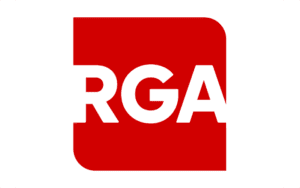What is the purpose of a premium?
What is the purpose of a premium?
Definition: Premium is an amount paid periodically to the insurer by the insured for covering his risk. Description: In an insurance contract, the risk is transferred from the insured to the insurer. For taking this risk, the insurer charges an amount called the premium.
How is premium charged?
How an Insurance Premium Works. When you sign up for an insurance policy, your insurer will charge you a premium. This is the amount you pay for the policy. Policyholders may choose from several options for paying their insurance premiums.
What is a premium example?
Premium is defined as a reward, or the amount of money that a person pays for insurance. An example of a premium is an end of the year bonus. An example of a premium is a monthly car insurance payment.
What is the mean of premium?
premium noun [C] (EXTRA) something extra given or an extra amount charged: You get a lipstick as a premium with the purchase of this makeup. Our customers are willing to pay a premium for a superior product. at a premium. If you get something at a premium, you pay a high price for it, esp.
What is a benefit premium?
Premium – Agreed upon fees paid for coverage of medical benefits for a defined benefit period. Premiums can be paid by employers, unions, employees, or shared by both the insured individual and the plan sponsor.
What is total premium?
The Total Premium is the amount that each plan option costs according to the insurance provider. The Total Premium may increase, stay the same, or decrease every year.
What does higher premium mean?
When you’re willing to pay more up front when you need care, you save on what you pay each month. The lower a plan’s deductible, the higher the premium. You’ll pay more each month, but your plan will start sharing the costs sooner because you’ll reach your deductible faster.
What are the different types of premium?
Modes of paying insurance premiums: Lump sum: Pay the total amount before the insurance coverage starts. Monthly: Monthly premiums are paid monthly. … Quarterly: Quarterly premiums are paid quarterly (4 times a year). … Semi-annually: These premiums are paid twice a year and are way cheaper than monthly premiums. More items… • Aug 28, 2018
What is the synonym of premium?
superior, premier, high-end, top-end, exclusive, elite, top, select, choice, deluxe, luxurious, classy, prime, first-rate, high-quality, top-quality, high-grade, five-star, fine, finest. British upmarket. North American upscale. inferior.
What is the purpose of insurance?
Purpose of insurance Its aim is to reduce financial uncertainty and make accidental loss manageable. It does this substituting payment of a small, known fee—an insurance premium—to a professional insurer in exchange for the assumption of the risk a large loss, and a promise to pay in the event of such a loss.
How long do you have to pay premiums on life insurance?
A term life insurance policy is the simplest, purest form of life insurance: You pay a premium for a period of time – typically between 10 and 30 years – and if you die during that time a cash benefit is paid to your family (or anyone else you name as your beneficiary).
What is covered under a commercial auto policy?
Commercial auto insurance typically provides coverage for: liability damages; collision or comprehensive physical damage loss to your business autos; medical expenses for injury to occupants of your business autos; and damages sustained by occupants of your business autos due to the negligence of an uninsured or …
What is the difference between commercial auto insurance and business auto insurance?
The most evident difference between business insurance and commercial auto policies involves how work-related vehicles are used are used. Business auto insurance covers vehicles used for trips through regular traffic, whereas commercial auto insurance covers specialized vehicles designed for specific jobs. Sep 6, 2020
What commercial auto means?
Commercial auto insurance, also known as commercial vehicle insurance, only covers business-owned vehicles. It does not cover personal vehicles used for business purposes, unless that’s their primary use. If your employees use their own vehicles for work errands, they may need hired and non-owned auto insurance.
What commercial insurance means?
Commercial business insurance is coverage for businesses and corporations, generally designed to cover the business, its employees and ownership. Since there are so many types of businesses with different needs and situations, commercial insurance can come in many shapes, sizes and colors.





